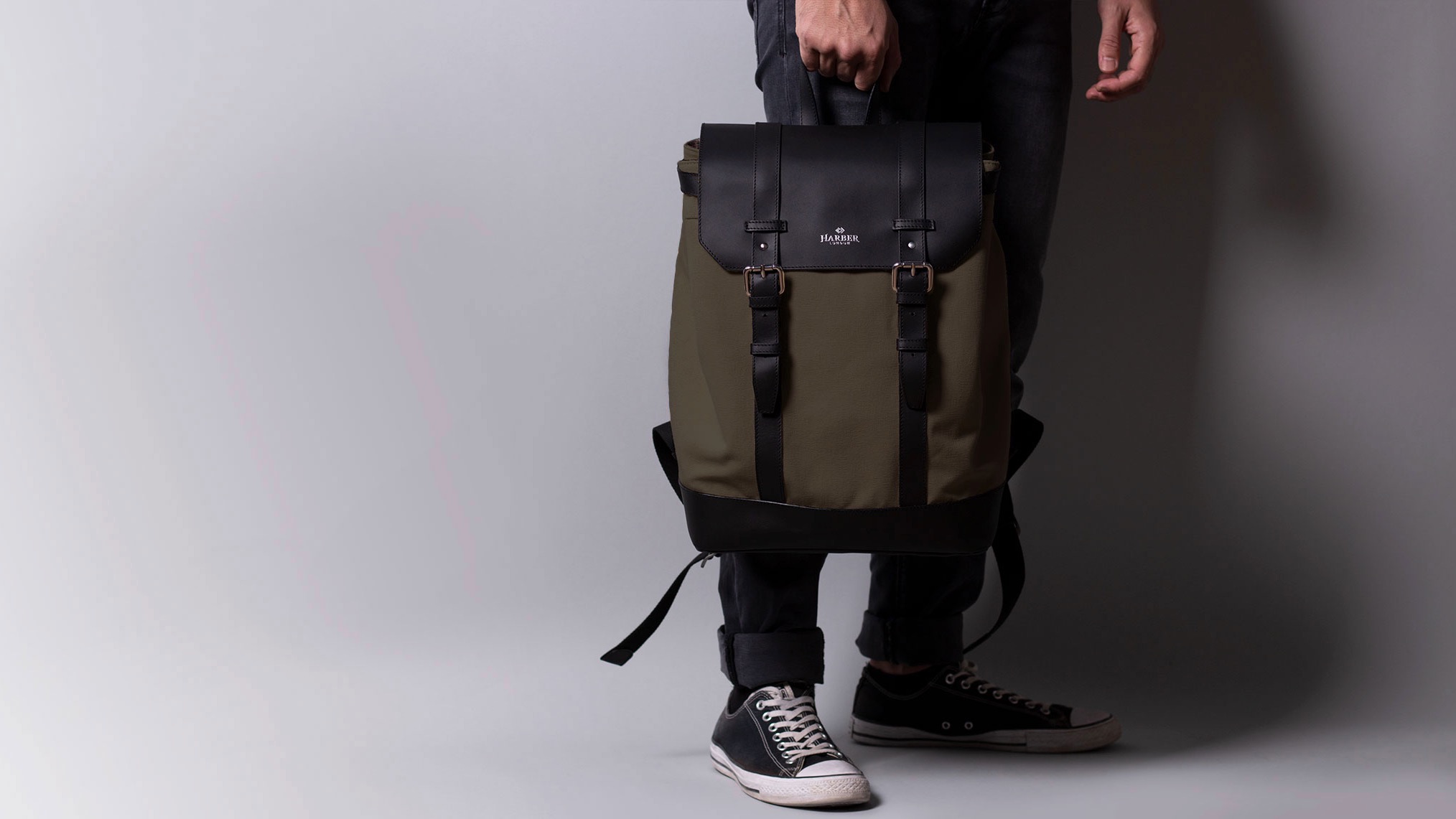

So you’ve bought one of the best laptops and now you want to buy a laptop backpack, but do you know exactly what to look for? Whether you’re buying it to allow you to travel more easily through airports and train stations, to business meetings, college or for your new digital nomad-style remote working lifestyle, here’s what you need to know to choose the best laptop backpack for you.
1. Measure-up
How big is your laptop? Apple’s MacBook Pro comes in 13-inch and 16-inch screen sizes, though they’re very much mid-size, with 11-inch and 17-inch PC laptops available. Most laptop backpacks err towards hosting the larger sizes, but check the exact dimensions of the laptop sleeve before you buy. You don’t want your laptop to be either too big to fit, or too small that it rattles around. Some laptop backpacks have Velcro-powered security strips to keep everything snug.
Also worth checking is that the exterior measurements of a laptop back fit inside the standard size of carry-on luggage permitted by airlines: 56x45x25cm. Hand luggage restrictions at UK airports are important if you’re going to be travelling with your laptop backpack someday.
Read T3's guide to the most popular airline's baggage allowance: luggage limits, excess charges, and how to avoid them.
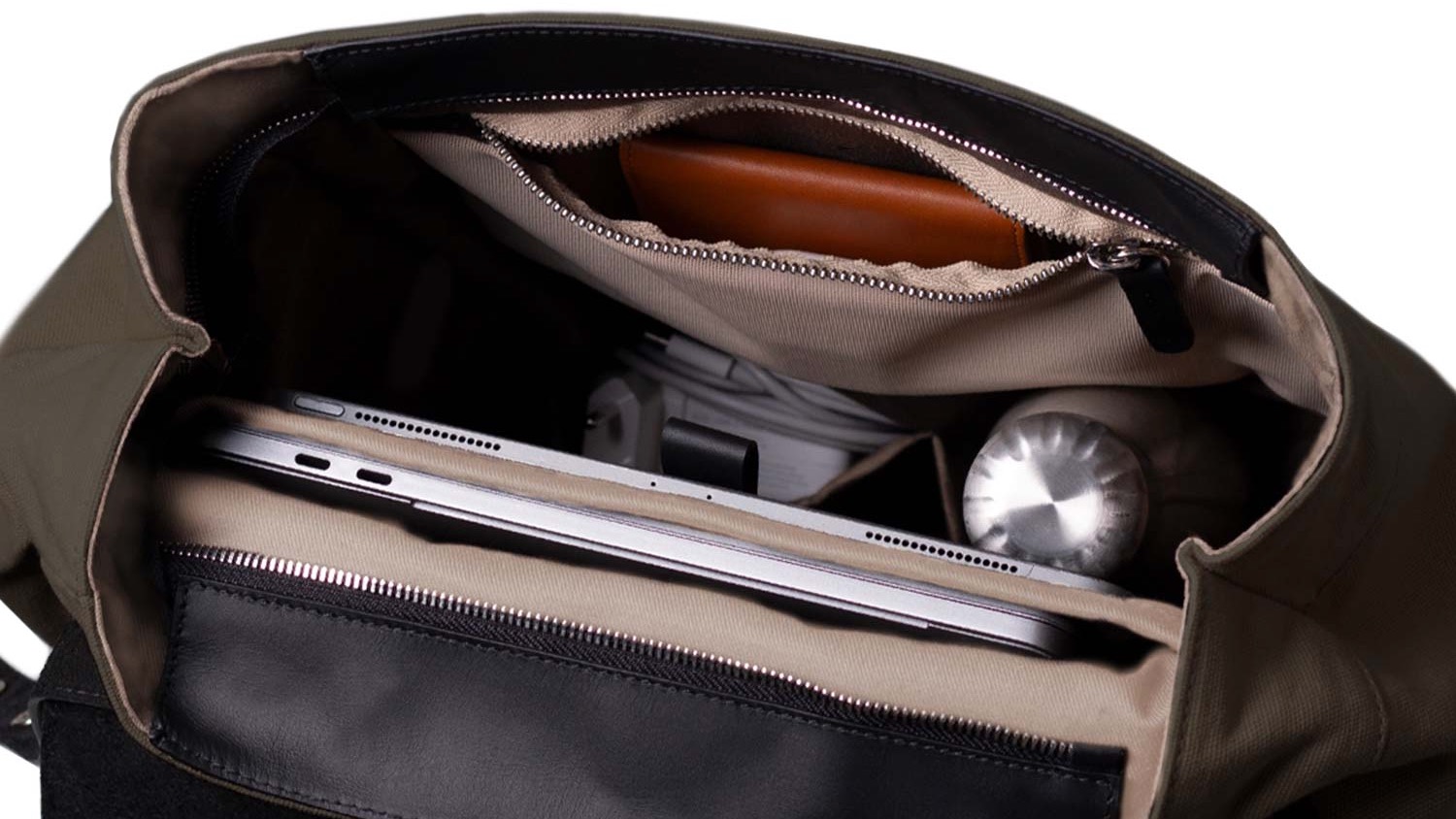
2. Think about where you’ll take it
Are you buying a laptop backpack so you can use it as hand luggage and work while you’re at 35,000 feet? Or just to take to college and back? Maybe you’re a wedding photographer who needs to have a laptop and heavy camera gear within easy reach, or a digital nomad who likes to travel really light, but needs their laptop with them at all times. Whatever your intentions, the laptop backpack you’ll need will differ. Some are outdoors-focused, with rain covers and hip belts for going on a hike, while others are designed to be super-smart for business meetings. The former tend to be more comfortable when worn for long periods, but aren’t going to help you look smart at an interview. The less demanding the environment and the fewer compartments on offer, the smaller the prospective laptop backpack should be.
3. Make sure it can cope with the elements
Even if you plan to use your laptop backpack only for getting on and off trains and gliding through airports and onto planes, think about the outdoors. Since you’ve got such an expensive item inside, your laptop backpack should be able to protect its precious contents from rain. That means water-resistant materials, watertight seams and splash-proof zips that have a PVC covering on the outside. You can also find laptop backpacks with roll-top closures and/or integrated pull-out rain covers. However, the more you get obsessed with waterproofing the closer you get to outdoorsy hiking backpacks. For general urban use, just prioritise tough exterior material.
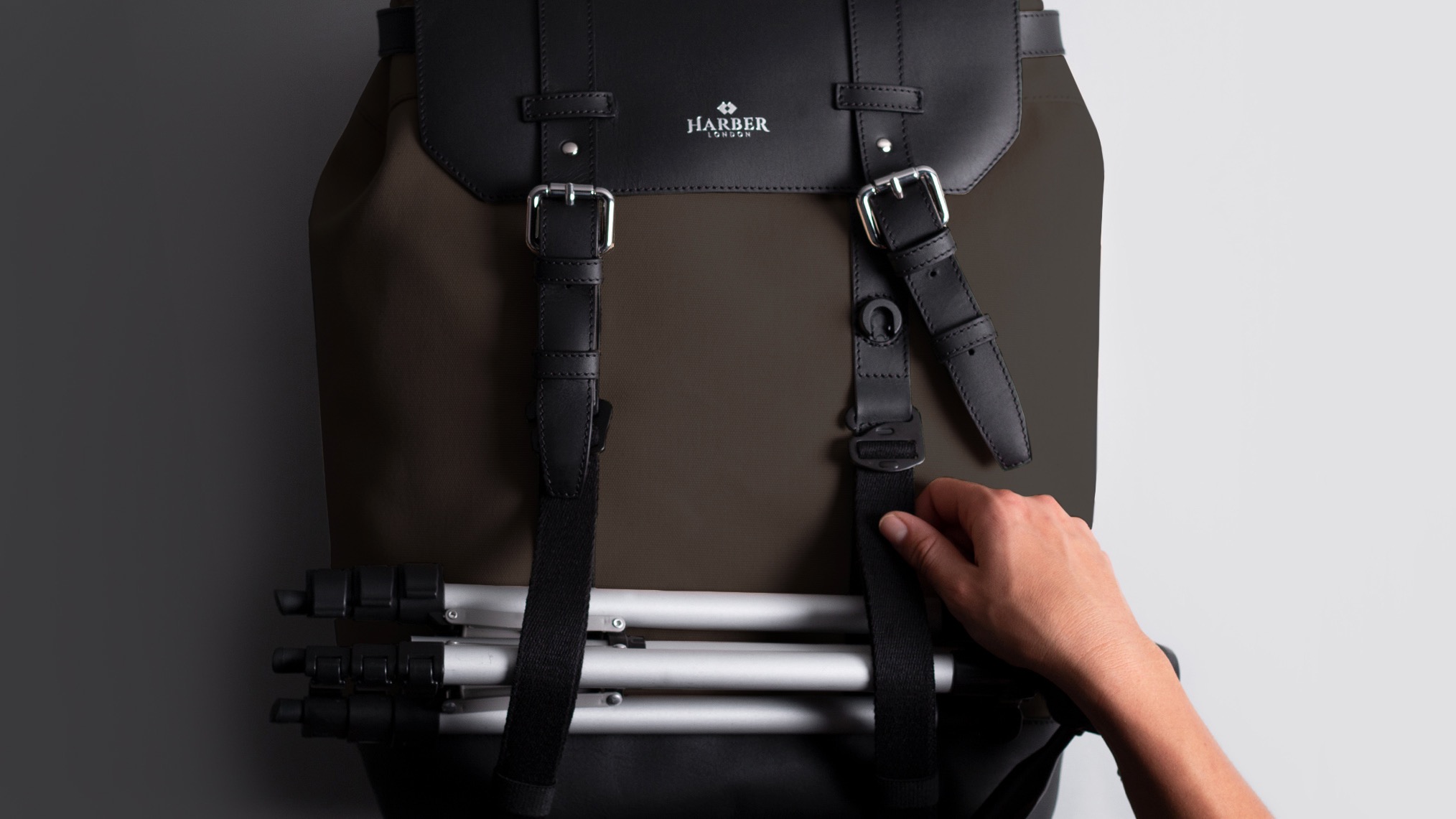
4. Investigate the laptop compartment
All laptop compartments are designed to protect your expensive gear. However, they’re not all the same. Some will use simple, cheap foam to provide some proaction. Others will include fancy shock-proof material – and even suspend your laptop in a frame – so it can survive a drop. While small laptop bags tend to include just one sleeve for a laptop, many now add a second compartment within for a 10-inch tablet. Even if you don’t plan to travel with one, this area can be useful for storing papers or a notepad.
Sign up to the T3 newsletter for smarter living straight to your inbox
Get all the latest news, reviews, deals and buying guides on gorgeous tech, home and active products from the T3 experts
5. Is it primed for airports?
There’s more to a travel-friendly laptop backpack than that it fits inside an airline’s cage at the gate. Here are four characteristics that can make laptop backpacks work really well around airports:
- Carry handles on the top and sides of the backpack.
- A strap on the back between the shoulder straps that allows a laptop backpack to slide over the retractable handle of a wheeled suitcase you plan to check-in.
- Stowable shoulder straps that make a laptop backpack to look like a suitcase (useful if you need to check it in and don’t want the straps to get ripped off).
- Wheels and a retractable handle so you can drag your laptop backpack as if it was ‘proper’ wheeled luggage.
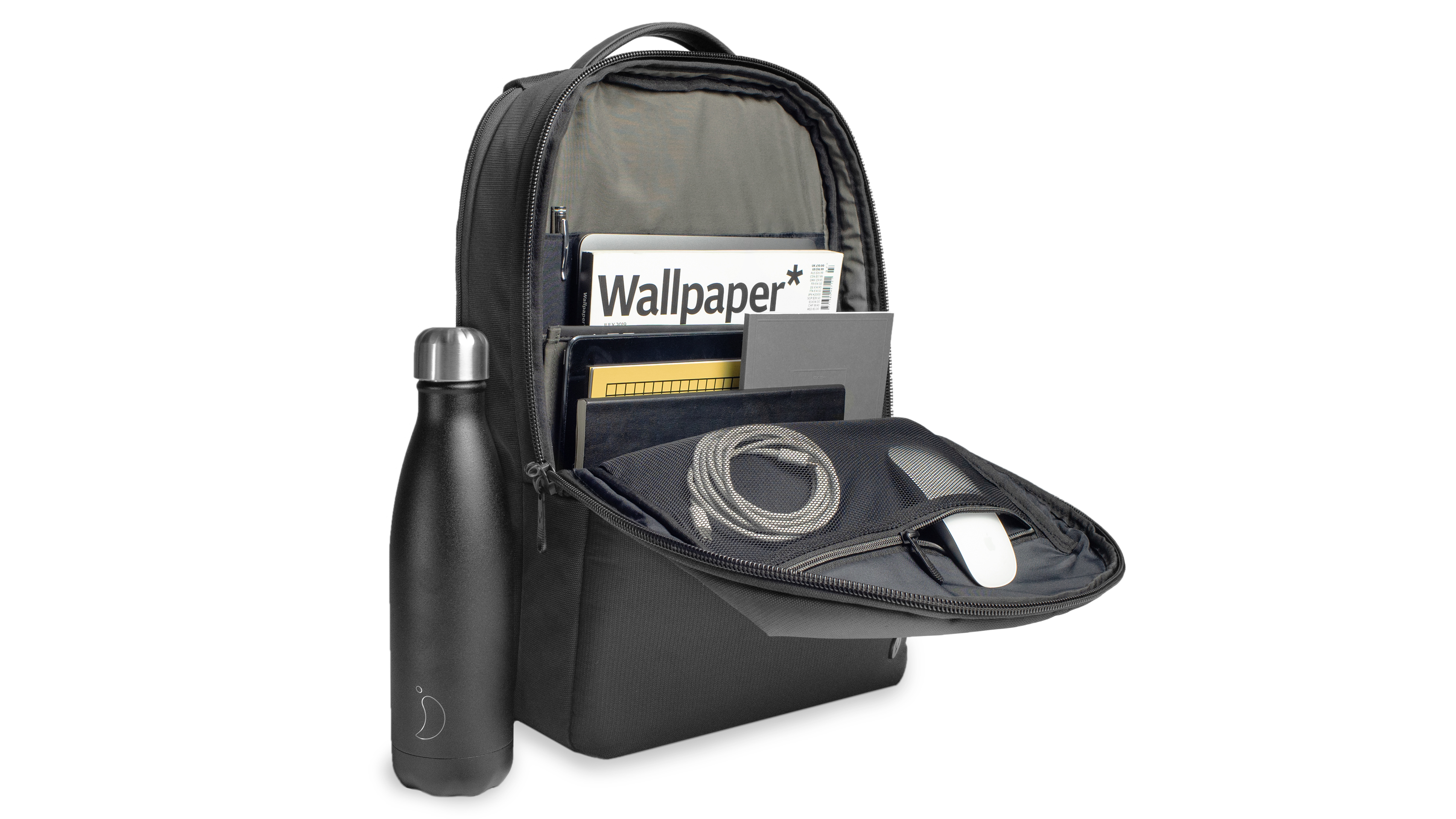
6. Consider a photography backpack
Even if you don’t plan to take a camera, a small photography backpack can be a great option for anyone wanting to travel with a laptop. Usually they’re fairly bulky, tough and water resistant, with an integrated laptop sleeve often found between the straps facing the wearer’s back. As well as being highly secure, such backpacks are typically accessed using a full perimeter zip that completely opens-up the back of the backpack.
As a bonus, photography backpacks can be customised using Velcro dividers, so you can create an interior to suit what else you need – such as a power pack for your laptop, a rolled-up jacket, and even your lunch. Photography backpack straps also tend to be pretty comfortable and often feature removable chest straps and waist belts, so you can use them both in urban and outdoors environments.
7. Look for useful extras
Though laptop compartments tend to be at the rear of backpacks, a lot of them come with an organiser pocket or two on the front and sometimes a central compartment. They can be useful for storing things like a portable battery, power pack and cables, pens, documents, noise-cancelling headphones and even clothes and toiletries if you’re on an overnight trip. Here are a few other things to look for on a laptop backpack that may make it a real standout for you:
- A soft pocket for storing electronics that you don’t want to scratch.
- A dedicated hard-shell sunglasses pocket on the top.
- A stretch pocket on both sides that can securely hold a water bottle and/or a small travel umbrella, travel pillow or eye mask.
- An integrated ‘cable management system’ that consists of a series of holes inside the backpack so you feed through a charging cable.
- A ‘wet pocket’ that can double as a wash bag.
Decide what you need, choose carefully and you’ll find the perfect laptop backpack for you.
Jamie is a freelance journalist, copywriter and author with 20 years' experience. He's written journalism for over 50 publications and websites and, when he's not writing, spending most of his time travelling – putting the latest travel tech through its paces.
-
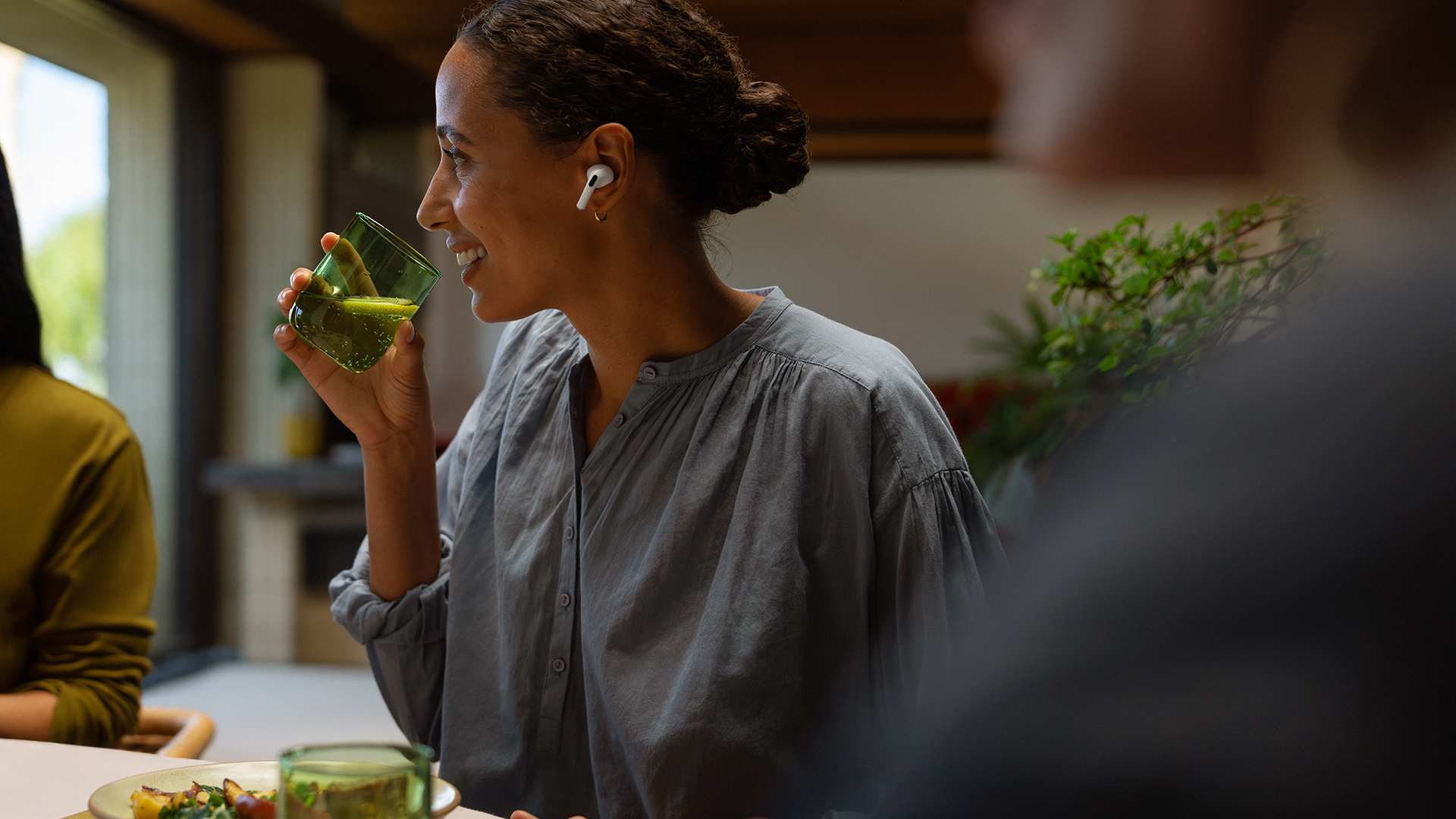 Leaked AirPods prototype looks like Nothing... literally
Leaked AirPods prototype looks like Nothing... literallyAnd we are here for them
By Britta O'Boyle Published
-
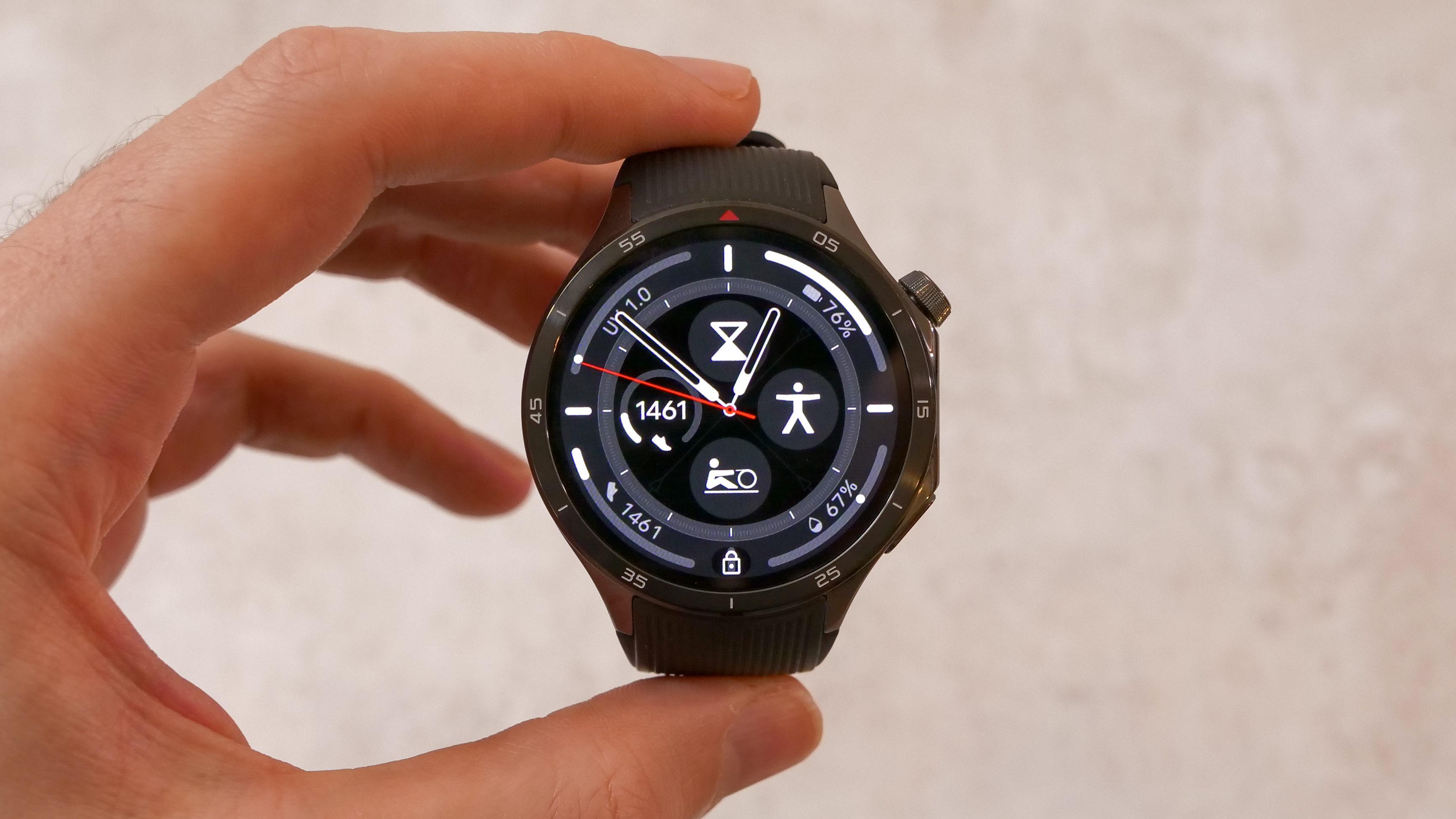 OnePlus Watch 3 lands in the UK with a flurry of freebies and a huge discount
OnePlus Watch 3 lands in the UK with a flurry of freebies and a huge discountThe new titanium-clad smartwatch brings 120-hour battery life, ECG health checks, and some serious launch offers
By Matt Kollat Published